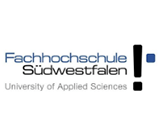Detailed introduction of South Westphalia University of Applied Sciences:
Introduction and Overview
South Westphalia University of Applied Sciences is located in North Rhine-Westphalia, Germany, with campuses in Hagen, Iserlohn, Lüdenscheid, Meschede and Soest. It is one of the largest universities of applied sciences in the region.
The school provides education in a wide range of subject areas, covering engineering, natural sciences, information technology, business management, agriculture, etc., providing students with a variety of learning options.
History and establishment time
The school was established in 2002.
School Strength
Faculty: It has 787 academic staff members who can provide professional teaching and guidance to students.
Teaching mode: Focusing on practical application and cooperation with the industry, through small class teaching, personal attention and close contact with enterprises, ensure that students receive a comprehensive education and prepare for their future careers.
Research situation: Work in multiple research fields, such as computer science, information and communication technology, optical technology, materials science, production engineering, environmental and energy research, sustainable agriculture, and bio- and nanotechnology, and has established a cooperative network with relevant research and technology transfer institutions.
Institutional nature
South Westphalia University of Applied Sciences is a public, non-profit university of applied sciences.
Educational philosophy
Emphasizing small class teaching and personal attention, committed to creating a friendly learning environment, prioritizing close interaction between students and teachers and personalized support to help students develop better.
Focusing on practical application and industry cooperation, cultivating students' ability to solve practical problems, enabling students to quickly adapt to jobs after graduation and succeed in their careers.
Advocating interdisciplinary learning and research, encouraging students to communicate and cooperate between different disciplines, and cultivating students' innovative thinking and comprehensive literacy to cope with complex and changing social needs.
Key laboratories and disciplines
Key laboratories: The school is equipped with modern laboratory facilities, such as engineering laboratories, computer science laboratories, etc., which provide students with a platform for practical operation and scientific research, help students apply theoretical knowledge to actual projects, and improve students' practical and innovative abilities.
Key disciplines: The school's key disciplines include aluminum technology, applied digital image processing, metal processing process automation in the automotive industry, computational intelligence and cognitive systems, etc. These disciplines have achieved remarkable results in teaching and scientific research, providing students with high-quality educational resources, and also making important contributions to the development of related industries.
Department settings
The school has eight departments, covering a wide range of disciplines, providing students with comprehensive professional education.
Rankings
The school has not yet achieved outstanding rankings in internationally renowned university rankings such as the QS World University Rankings, Times Higher Education World University Rankings, and Academic Ranking of World Universities, but it has a certain reputation and influence among German universities of applied sciences, and some of its majors are highly recognized in the industry.
Expenses
Tuition fees: German citizens and EU citizens can enjoy free education, some courses for non-EU citizens are free, and some courses can cost up to 5,000 euros per semester. , the specific fees vary depending on the major.
Registration fee: about 500 euros per semester.
Living expenses: In the area where the school is located, the monthly living expenses of students are about 800-1000 euros, including accommodation, food, transportation, entertainment and other expenses.
Campus
Campus environment: Each campus has modern buildings and complete facilities. For example, the Iserlohn campus is famous for its excellent learning quality, good future prospects and pleasant environment, and the Meschede campus has modern buildings and comprehensive facilities, providing students with high-quality learning and research conditions.
Campus culture: The school focuses on creating a positive campus cultural atmosphere and encourages students to participate in various academic, cultural and sports activities, such as academic lectures, cultural festivals, sports games, etc., to enrich students' extracurricular life, promote exchanges and cooperation among students, and cultivate students' teamwork spirit and comprehensive qualities.
-

Heidelberg University
-

University of Freiburg
-

University of Jena
-

University of Marburg
-

University of Rostock
-

University of Halle-Wittenberg
-

University of Bayreuth
-

Leipzig University
-

University of Tübingen
-

Humboldt University of Berlin
-

Mesoamerican University
-

Istmo University
-

Mariano Galvez University of Guatemala
-

Regional University of Guatemala
-

Galileo University
-

Francisco Marroquín University
-

Rafael Landívar University
-

University of the Valley of Guatemala
-

University of San Carlos of Guatemala
-

Technological Institute of Tlaxcala Plateau
-

Golfo University
-

Technological University of South Sonora
-

Technological University of Huejotzingo
-

Tizimín Institute of Technology
-

Chilpancingo Institute of Technology

